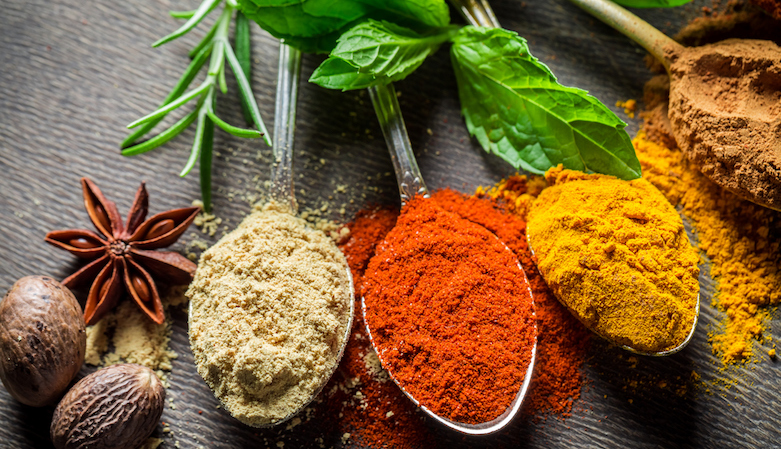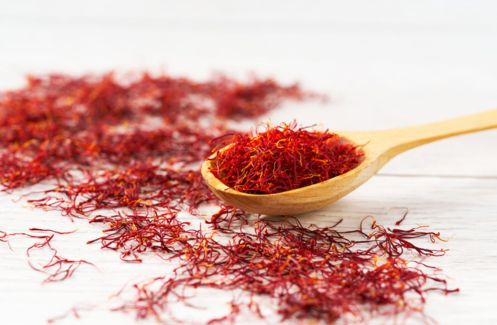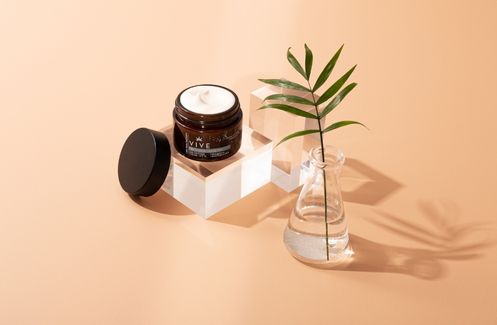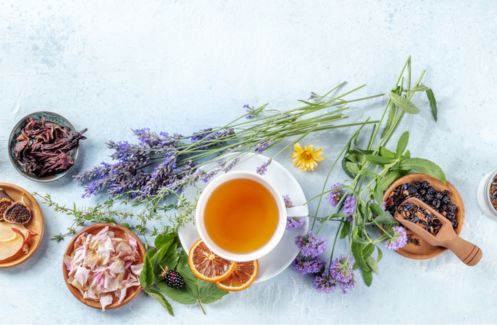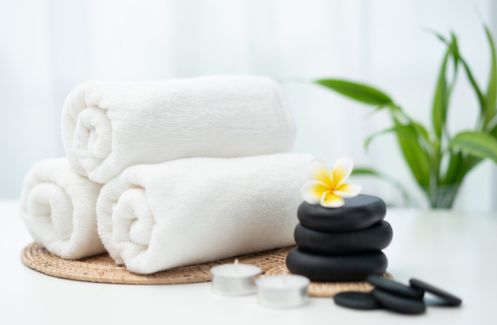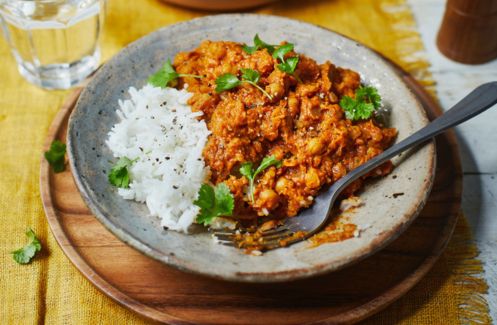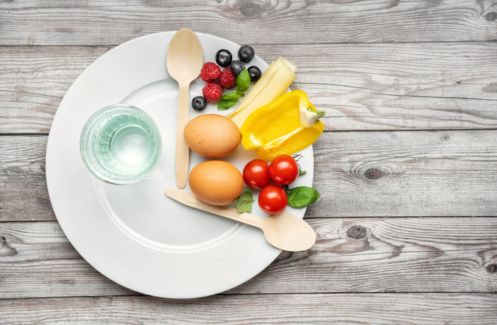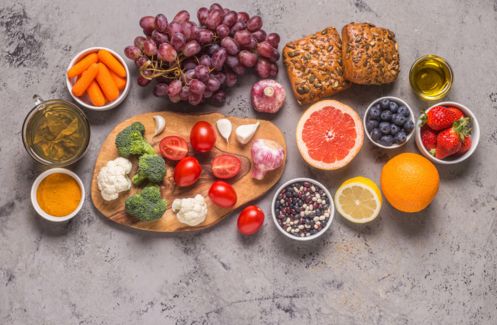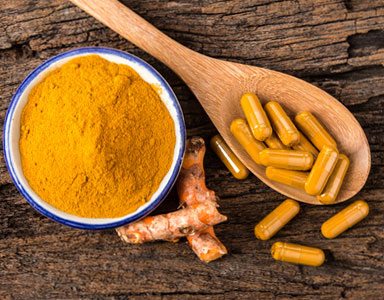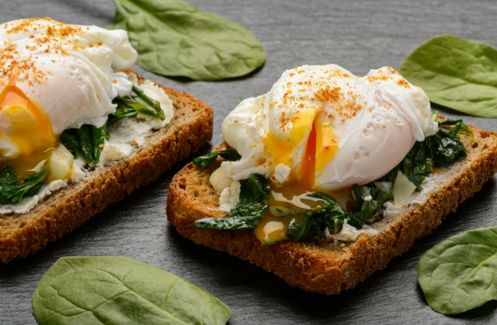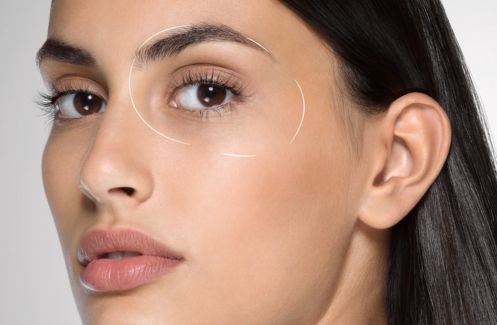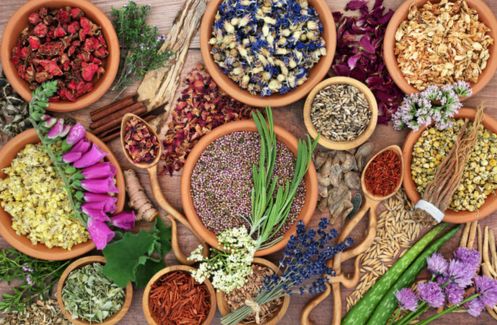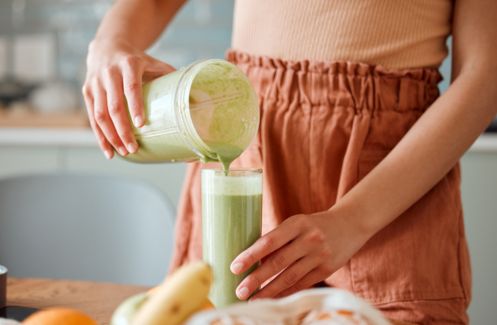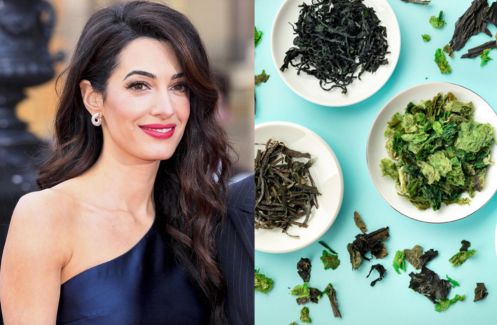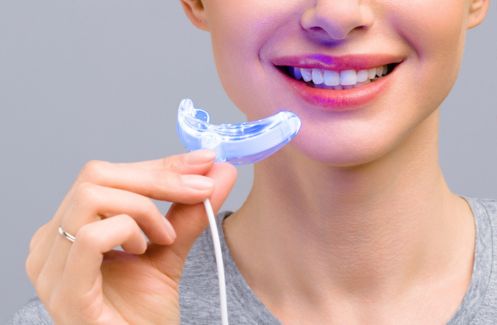If 2017 was the year of the Superfood, 2018 is set to be the year of the Superspice. From reducing inflammation to keeping cravings at bay, healthy spices are set to be the celebrated health foods of the year. Anna Magee finds out why
I’m always on the lookout for new health trends and they’re not hard to spot at healthista HQ where we get sent / told everything that is worthy of knowing in health and fitness. No, seriously, we do. So, 2017 was the year of the probiotic – fermented foods and supplements that help colonise the healthy bacteria in our intestines – and of course, the superfood, concentrated forms of foods that have serious health benefits (some, like the goji berry came and went in a blaze of unsubstantiated hype, while others, such as inulin and matcha green tea had evidence for their effectiveness grow). This year, get ready for the Superspice. Whether you add copious amounts of them to your diet and cooking, or you take them in the supplement form they’re increasingly being made available in, these are foods that have been used traditionally in cooking for years and are now being heralded for their health benefits. For these six at least, there is research to support the hype too.
TURMERIC
Turmeric is a thermogenic (literally means ‘heat-creating’) spice, explains Rick Hay, nutritionist and lecturer in weight management at the College of Naturopathic Medicine in London. This means it can have a fat-burning effect on the body because of the heat it creates after eating and during the digestive process.
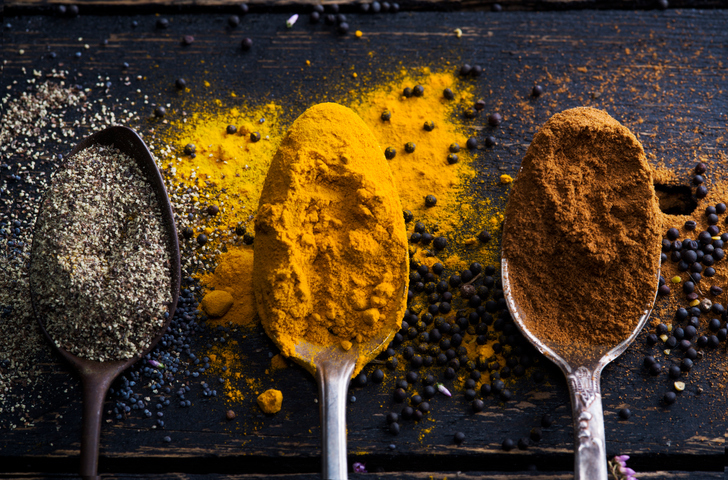
But turmeric’s star quality lies in its ability to reduce inflammation throughout the body, including, as shown in this 2013 study, in people with osteoarthritis. ‘Turmeric has many proven health benefits and among these the ability to reduce inflammation is key,’ says nutritionist Kim Pearson. ‘Low level inflammation can speed up ageing processes and contribute to disease progression so keeping our inflammatory responses in check can help keep us healthy. Studies also show that turmeric could be useful for digestive and liver health, for our skin health and helping to prevent post-exercise aches.’
However, there’s a caveat. ‘The beneficial compounds in turmeric, known as curcuminoids, are known to be notoriously poorly absorbed by the gut,’ explains Pearson. Indeed, in a Channel 4 documentary, Superfoods: The Real Story last October it was highlighted that in order to benefit from turmeric, it needed to be taken in a form that was easily absorbed by the body. That means, that while adding lots of turmeric to your curries and smoothies, won’t do you any harm, the real benefits may need a different form of delivery.
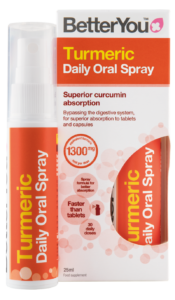 This is where a cheek spray may come in helpful. One product, BetterYou’s Turmeric Oral Spray (left, £17.95 from Healthista Shop), was tested in a pilot study by researchers at Cardiff University and found to be 4.5 times more effective than tablets, capsules and drops. It is made with a unique formulation that uses what’s known as Cyclodextrin Encapsulation to increase bioavailibity , improve taste and reduce staining. The process ensures the turmeric remains soluble and offers a greater uptake of turmeric’s three active curcuminoid compounds, delivering it directly into the bloodstream via the soft tissue in the mouth.
This is where a cheek spray may come in helpful. One product, BetterYou’s Turmeric Oral Spray (left, £17.95 from Healthista Shop), was tested in a pilot study by researchers at Cardiff University and found to be 4.5 times more effective than tablets, capsules and drops. It is made with a unique formulation that uses what’s known as Cyclodextrin Encapsulation to increase bioavailibity , improve taste and reduce staining. The process ensures the turmeric remains soluble and offers a greater uptake of turmeric’s three active curcuminoid compounds, delivering it directly into the bloodstream via the soft tissue in the mouth.
If you’re going down the food-source route, Rick Hay recommends a teaspoon or two a day before breakfast and dinner in juice or a smoothie, but do remember the absorption caveat above.
CINNAMON
Cinnamon nourishes the nervous system by calming the blood sugar levels, explains Rick Hay. Indeed, repeated research has shown it can even help lower the blood sugar levels of Type-2 diabetics which means it may help reduce sugar cravings between meals. In Ayurveda, it’s advised to have a tablespoon of aloe vera juice and with a sprinkling of cinnamon at 3pm to help ward off afternoon sweet cravings (it really works too). Cinnamon may also help with sleep, says Hay. ‘From an insomnia perspective, if you find yourself waking up in the small hours, it could be down to blood sugar spikes that subsequently wake you up as your blood sugar drops,’ he says. A small bowl of porridge with cinnamon before bed or even a little cinnamon in some camomile tea could help reduce your early morning waking. If you wish to take a supplement to help balance blood sugar levels, try Biohealth Cinnamon Bark (£7.83 for 60 capsules from Healthista Shop). To take cinnamon for sleep purposes, try Healthista Night Food (£18.95 from Healthista Shop)
CHILLI
If your dinner makes you sweat, you’ve proof of its thermogenic effect (see above) on your metabolism. In one study on Thai women, chillies were found to immediately increase metabolic rate by 20 per cent and sustain it for up to thirty minutes.
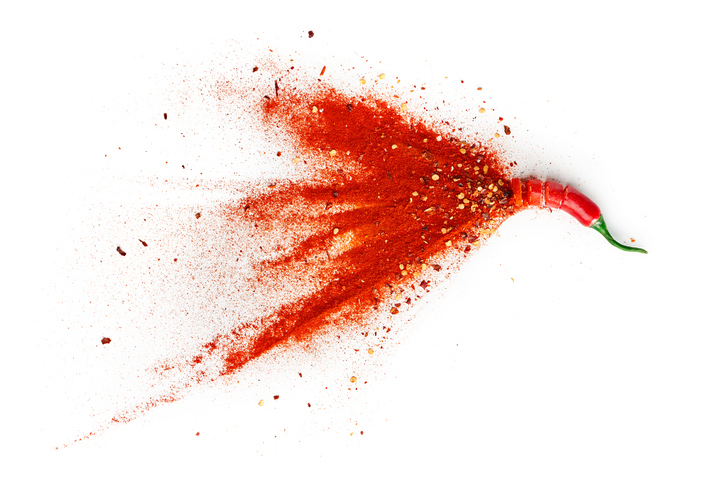
But it’s not just chilli and cayenne pepper that can pump up your metabolism after eating. More recently cinnamon, ginger, mustard, horseradish and turmeric have all been found to have a similar thermogenic effect of literally switching on your body’s heat-production systems, boosting the metabolism as you eat them and afterwards. For a metabolic kick-start first thing: Grate a touch of fresh ginger (see below) into a pint of warm water, add a pinch of cinnamon and cayenne as well as the juice of half a lemon (this acts like ‘dishwashing liquid’ on your liver and is great if you have been over-indulging on the alcohol front) and consume before breakfast.
FENUGREEK
The bitter seeds of the fenugreek plant have some seriously understated health properties, says Rick Hay. ‘Super-high in iron, it helps with overall gut function and stimulates and soothes the digestive system. It could also help with bloating and inflammation in the body which could manifest as mouth ulcers, skin conditions such as eczema and infections as well as helping to lower cholesterol’. One Indian study showed that administering 2.5 grams of fenugreek twice daily for three months to people dealing with non-insulin-dependent type-2 diabetes significantly lowered their cholesterol levels along with triglycerides, without affecting ‘good’ HDL cholesterol. And if your man is having problems in the bedroom, a supplement of fenugreek might help. A small study on 60 men between 25 and 52 with erectile dysfunction published in Phytotherapy Research found those that took 600mg of fenugreek daily had a positive effect on their libidos. Ultimately, the study found that fenugreek extract had a significant influence on sexual arousal, energy and stamina and helped participants maintain normal testosterone levels.
A strong tea made with a teaspoon fenugreek seeds boiled and simmered for ten minutes tastes pretty er, medicinal but has the most incredible ability to stop a cold in its tracks. It’s an ancient Indian remedy, famed for its anti-viral properties. if you feel a cold coming on, run a hot bath with some magnesium salts in, gently sip a cup of fenugreek tea and after you emerge, wrap up warm and go to sleep. It’s the quickest fix for an early cold we’ve tried. If you prefer to take a supplement, Nature’s Aid Fenugreek (£8.95 from Healthista Shop) provide 500mg fenugreek per capsule.

GINGER
It’s that word again – thermogenic, this time for ginger which has also been found to help switch on your body’s heat-production systems, boosting the metabolism as you eat them and afterwards. For a metabolic kick-start first thing: Grate a touch of fresh ginger into a pint of warm water, add a pinch of cinnamon and cayenne pepper as well as the juice of half a lemon (this acts like ‘dishwashing liquid’ on your liver and is great if you have been over-indulging on the alcohol front) and consume before breakfast.
Ginger also calms the stomach, via a chemical ingredient called gingerol which helps with stomach contractions, says Rick Hay. ‘It also relaxes the system generally and is also a good circulatory tonic,’ he adds. One randomised controlled study published in the journal Complementary Therapies in Medicine looked at the effects of taking a supplement containing ginger (along with other herbs and fruits) and showed that it reduced the time it took for insomniacs to fall asleep. Ginger is a great overall tonic for the nervous system too, Hay asserts. A 2010 study published in the journal Bioorganic and Medicinal Chemistry found that ginger might bind to the brain’s serotonin receptor which could have a calming effect on anxiety. ‘Serotonin is the brain’s feel good neurotransmitter,’ explains Hay. If you’ve eaten a big meal near bedtime, take ginger tea made with half a teaspoon of grated ginger and a cup of water boiled for five minutes for better nighttime digestion and to help sleep.
BLACK CUMIN
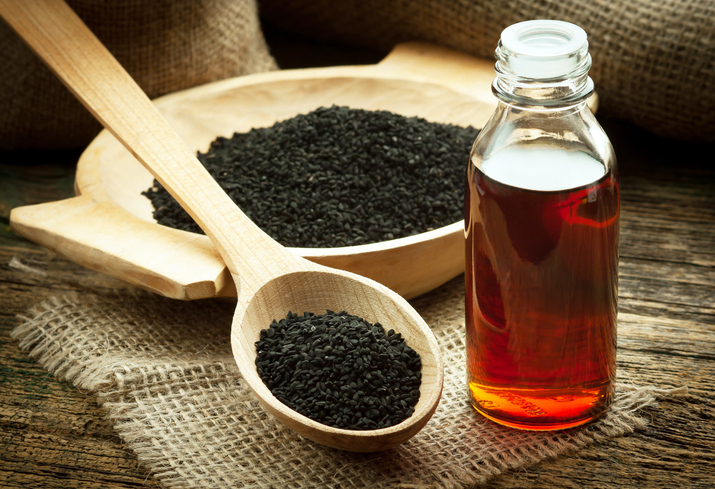
While turmeric has had all the credit, black cumin seeds are another unsung hero in the spice world, with a catalogue of health benefits that might surprise you. One 2010 study conducted in India on 94 patients with type-2 diabetes found that 2.5 milligrams daily could help balance their blood sugar levels. ‘Black cumin contains thymol which is great for digestive function and has also been used to treat respiratory problems and skin conditions,’ says Rick Hay. Black cumin is known as an ‘adaptogen’, a buzzword you can expect to hear more in 2018, which means it has an ability to help protect the body from various ailments and to increase your resilience to stress – the ‘adapt’ bit of the name means they can adapt themselves to your body’s specific needs. Adaptogens are particularly useful at helping stress-related conditions and other ones include Reishi Mushrooms and Rhodilola Rosea, both shown to help reduce stress. And guess what? Black cumin is also a thermogenic spice so adding it to your cooking could help create heat in your body like chilli, turmeric and ginger do (but it’s not recommended during pregnancy though). The seeds or oil can be added to your cooking or you can – it’s fab in curries and stews, especially if you toast the seeds and crush them in a mortar and pestle first. Fushi make a fantastic Organic Black Cumin Oil (£14 for 100ml from Healthista Shop) that can be used in cooking but also doubles as a brilliant gentle body oil for conditions such as eczema.
READ MORE
The heart health supplement proven by science
5 symptoms of vitamin D deficiency even doctors miss
What is the best probiotic pill? If you’re looking for one, read this first
8 hangover cures that REALLY work
JANUARY WEIGHT LOSS SPECIAL:
Shop 20% off (plus free UK delivery!) on Rick Hay’s weight loss essentials until 31st January on Healthista – shop now.
Like this article? Sign up to our newsletter to get more articles like this delivered straight to your inbox.



